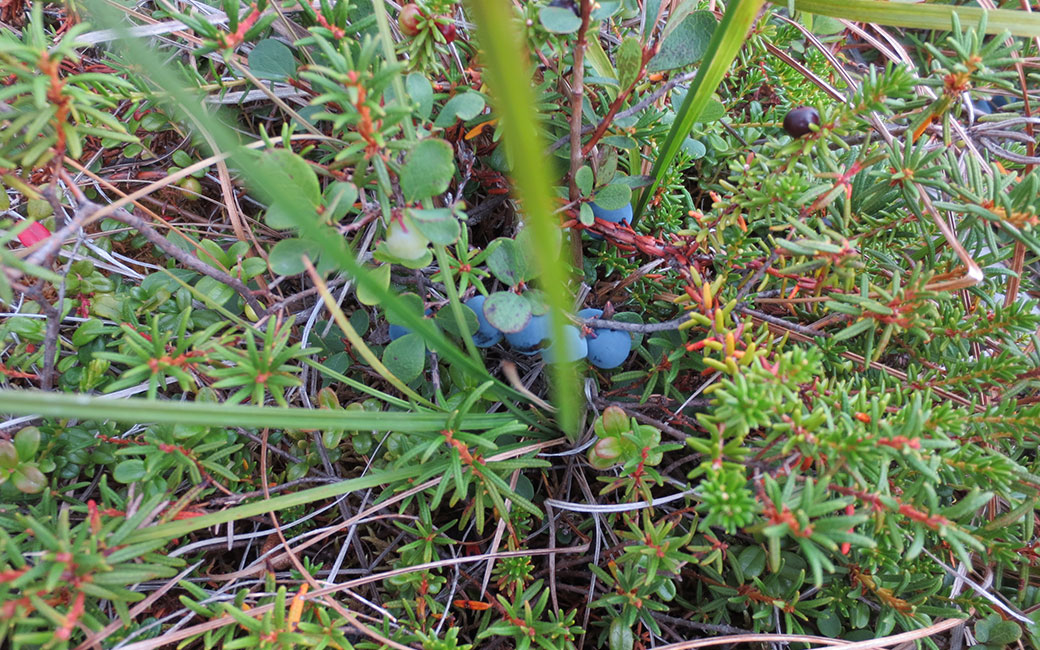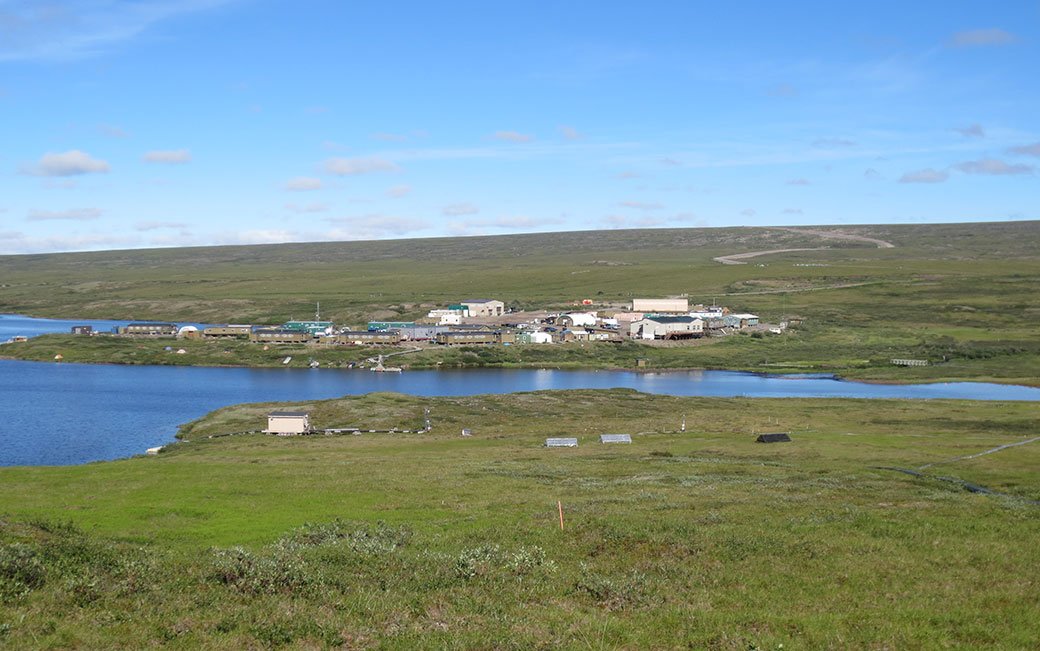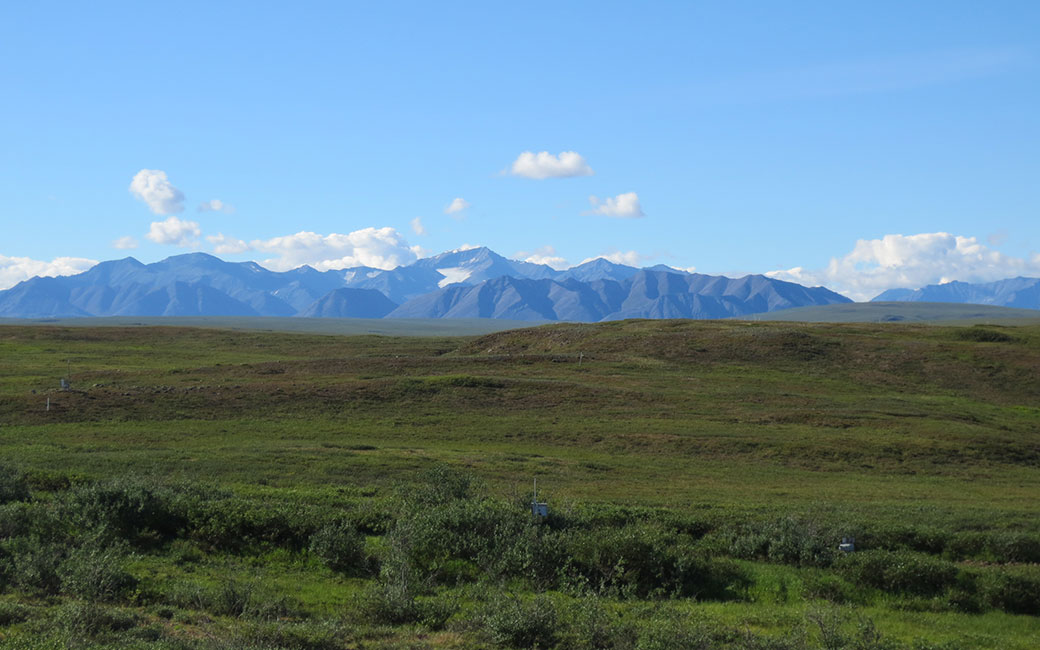
TU's Laura Gough is #TeamVole
Fisher College of Science and Math professor receives nearly $600,000 in NSF funding
By Megan Bradshaw on November 16, 2017
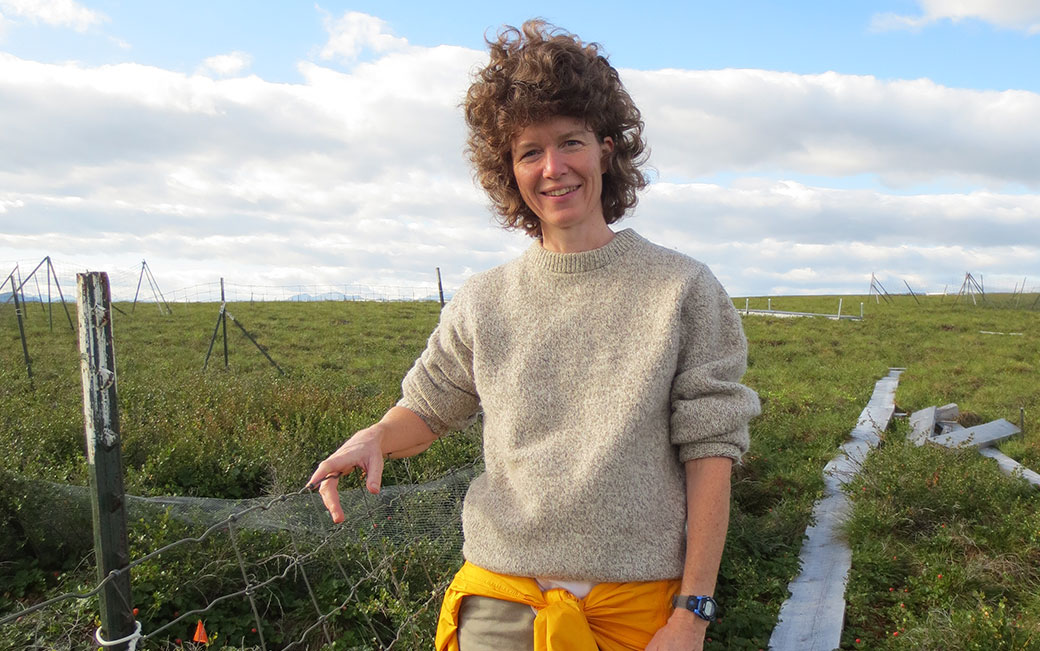
Some people look forward to summer vacation, planning sun-drenched getaways that feature plenty of beach time. Towson University biology professor and department chairperson Laura Gough and master’s student Matt Suchocki prefer the Arctic.
Gough is the co-principal investigator on two National Science Foundation (NSF) grants totaling over $570,000 — the Arctic Long-Term Ecological Research Project (LTER) and Collaborative Research: Adding animals to the equation, affectionately known as Team Vole.
She has been doing summer research in Alaska for over 20 years, and recently took over as the lead principal investigator for the terrestrial portion of the Arctic LTER, based at Toolik Field Station, 350 miles north of Fairbanks, Alaska.
Scientists are conducting experiments in the lakes, streams and on land, looking at increased temperature and nutrients’ effects on these ecosystems, effects of fire in this region, and whether boreal forest insects and pests are moving into the tundra. The goal is to understand how arctic ecosystems function and monitor the terrestrial system for changes in the plant, arthropod and small mammal communities.
Team Vole research is conducted at three sites: Toolik Field Station and Alaskan towns Barrow and Nome. The work involves both field work and model development, looking at the roles small mammals play — particularly voles and lemmings — in changing the ecosystem. Arctic soil contains a good deal of carbon; the project is looking to see how small animals affect the amount of carbon being released as the soil warms through climate change.
The scientists have partnered with native corporations for site facilities and equipment. Native peoples also serve as polar bear guards at the Barrow site when researchers are in the field; in town, Gough relies on the polar bear detection system embedded in the town.
Back at the Toolik Field Station, where Suchocki does his research, he was afforded his first look at a grizzly bear.
“We were sitting in the dining hall during breakfast. All of a sudden someone goes, ‘Look out the window!’ There’s a grizzly bear walking down the hill on one of our boardwalks. Of course everyone goes out on the deck, and we’re all looking at it and taking pictures. It starts playing around, probably chasing a ground squirrel. It was just so bizarre. All of a sudden it looked up, got a look at camp and was like ‘Nope, I’m out of here.’ It turned tail and ran.”
Suchocki spent his first summer in Alaska in 2017. He learned to take gas measurements using a carbon flux chamber and quantified plant cover in the experimental plots. Back at TU, he is now narrowing down his thesis questions in preparation for his work over the next two summers.
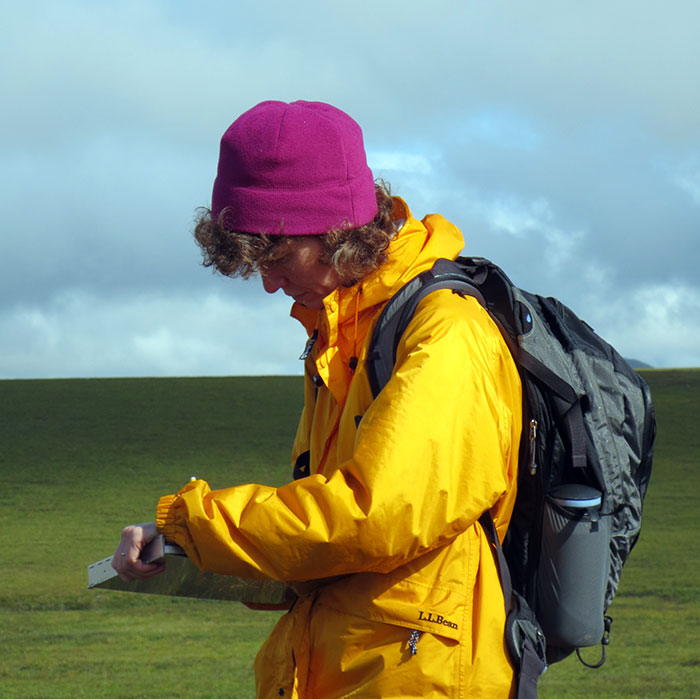
Gough is looking to hire a TU summer research assistant and two undergraduates to work at the Toolik site. The positions will have their travel and living expenses paid as well as a stipend. Suchocki, who started working with arctic ecosystems for the first time when he came to TU, cannot speak highly enough of his experience.
“I’m always thinking about when I can get back there. I can’t wait to go…,” he said. “I get to go out and do something cool that I really enjoy and meet new people and talk about what I love.”
Earlier this year, Gough was also the principal investigator of a FCSM team that will receive $1 million over five years from the Howard Hughes Medical Institute (HHMI) as part of its inaugural Inclusive Excellence initiative, which aims to transform undergraduate and minority student success in STEM fields.
This story is one of several related to President Kim Schatzel's priorities for Towson University: TU Matters to Maryland.
